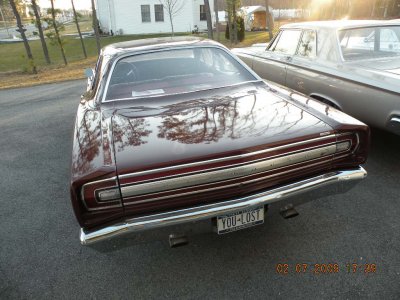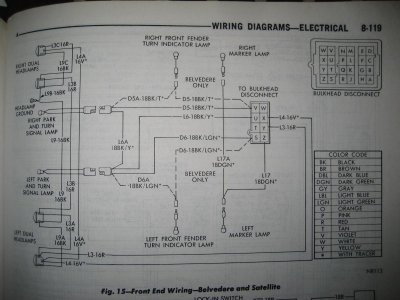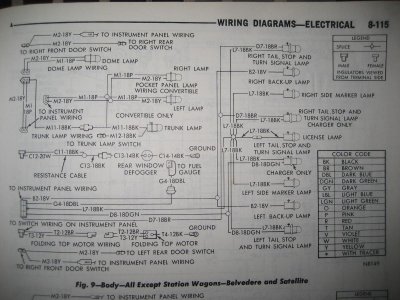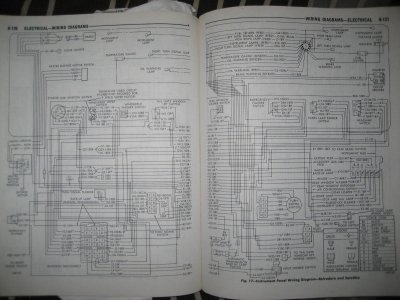I read it somewhere years ago that Chry Corp did get fined for not having lights in the rear qtrs
It's easy to find all kinds of made-up babble in readable form. In this case, you read something somebody put in print somewhere because he didn't know what he was talking about and his random guess seemed plausible to him for exactly that reason (he didn't know what he was talking about).
for arguments sake, how can you prove they did not get fined?
Well, it's easier for me to do so than it might be for most others, because I work with U.S., Canadian, and international automotive lighting regulations on a daily basis. I've contributed regulatory text to them. I'm a member of most of the working groups that keep them up-to-date and relevant. And as such:
1. I've got most of them pretty well memorized, and
2. I've got ready access to the prior versions for when I forget a detail.
In short, they didn't get fined because there would've been no basis for any such a fine; the '69 setup (sidemarker reflectors without lights) was fully compliant with the regulatory provisions in force at that time -- just like the lights-without-reflectors setup was fully compliant in '68. All Mopars, like all other-brand vehicles, had lights + reflectors starting in '70.
Moreover, "cheaper to pay the fine than to retrofit all the cars" is a nonstarter; that's never how the North American vehicle regulations' enforcement provisions have worked. If a regulated party (manufacturer or importer of vehicles or items of vehicle equipment) manufactures or imports something that is not fully compliant with all applicable regulatory provisions, the regulated party is legally obligated to
fix the noncompliance. There may or may not be civil penalties applied, but either way, unless the manufacturer or importer can prove the noncompliance is inconsequential to safety, he
must recall and correct the noncompliant vehicles or equipment. In the case of noncompliant aftermarket parts and accessories, the violator must recall the components, and may either replace them with compliant equivalents or refund the buyer's money. This is how it has always been.
We're not
really going to have a silly facts-vs-fantasy argument…are we?





















